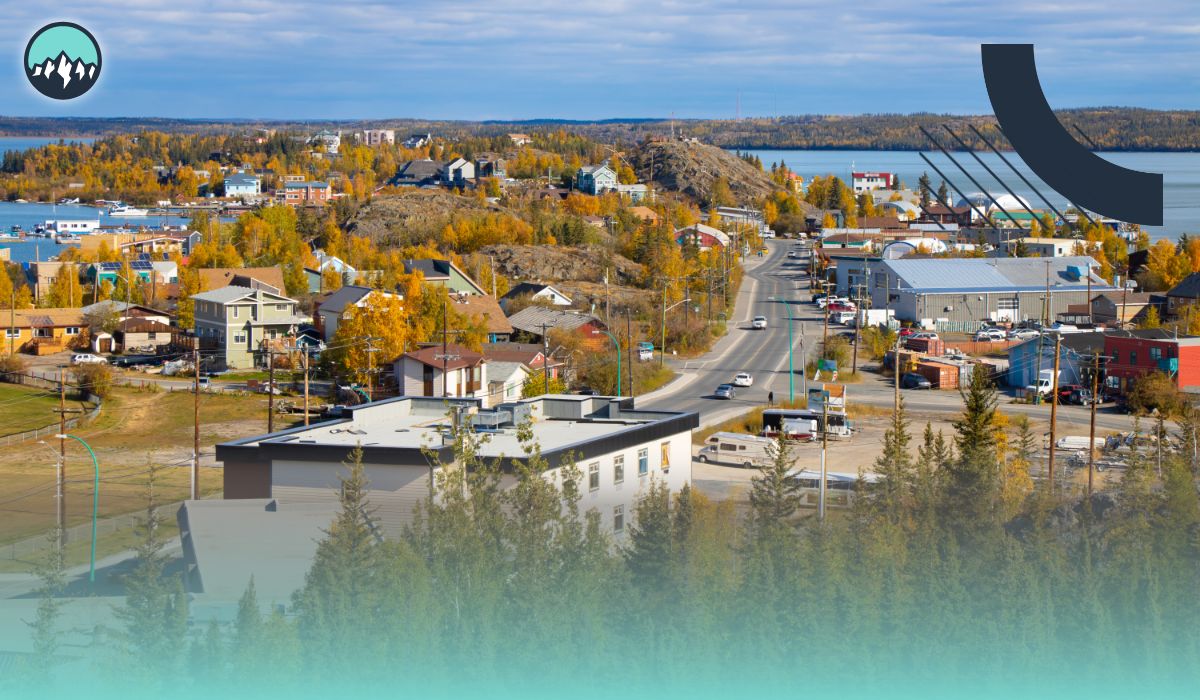From Leases to Laws: The Newcomer's Guide to Renting a Home in Canada
08 Nov 2024

Canada offers exciting opportunities for newcomers, but searching for the perfect home can feel overwhelming. The rental process might differ significantly from your home country, regardless of your interest in a Vancouver apartment or a Toronto house. Your success depends on understanding rental applications, lease agreements, tenant rights, and local housing rules.
We offer guidance and direction through the essentials of renting in Canada, including property searches, rental costs, utility setup, and ways to build strong relationships with your landlord.
Understanding the Canadian Rental Market

Canada's rental market offers a variety of options while presenting unique challenges to newcomers looking for their first home in Canada. Making informed housing decisions becomes significant when newcomers understand the market dynamics.
Types of Rental Properties
Canadian rental markets offer diverse housing options that match your needs and budget. Here are the main types of rentals you'll find:
- Purpose-built rental apartments (studio, one-bedroom, or two-bedroom units),
- Basement apartments (typically more affordable),
- Condominiums for rent,
- Detached and semi-detached rental homes, and
- Shared accommodation options.
Average Rent Prices in Major Cities
Canadian cities show rental costs that differ significantly. A one-bedroom apartment in these significant Canadian cities typically costs the following according to Numbeo.
| City | Average Monthly Rent for a 3 bedroom Apartment (CAD) | Average Monthly Rent for a 1 bedroom Apartment (CAD) |
|---|---|---|
| Vancouver | 5,169.35 | 2,830.92 |
| Toronto | 4,231.92 | 2,519.48 |
| Calgary | 3,162.20 | 2,020.55 |
| Montreal | 2,945.35 | 1,661.44 |
| Edmonton | 2,470.56 | 1,502.87 |
Vacancy Rates And Their Effect
According to the Canadian Mortgage and Housing Corporation (CMHC), the national vacancy rate has hit a historic low of 1.5% - the lowest since 1988. These tight market conditions affect your rental search by a lot:
- You'll face tough competition for available units, especially in Vancouver and Toronto,
- Rental prices rise faster in smaller, budget-friendly markets,
- Your bargaining power shrinks in popular areas, and
- Finding a place could take up to eight weeks.
Based on information from Statistics Canada, the Canadian rental market feels extra tough in major urban centers right now. Rental needs keep growing while available units stay scarce. If you're thinking about renting in Canada, you might want to learn about options in mid-sized cities like Edmonton or Quebec City. These places offer better rates and slightly more available units.
Understanding Canada's Rental Process
The process of renting in Canada requires a clear understanding of each step to secure your ideal rental property. This complete guide will help newcomers navigate the Canadian rental market effectively.
Finding Rental Listings
Multiple channels help you start your search for accommodation in Canada. Popular online platforms like Realtor.ca, Zumper, and PadMapper make the search easier. Rental agencies and local immigrant settlement agencies offer additional support. Taking a walk through your preferred neighborhood to spot "For Rent" signs works well too.
Documents You Need
Getting ready to look for rental homes in Canada? Here's what you need to prepare:
- Proof of income (pay stubs or employment letter),
- Credit report (if available),
- References from previous landlords or employers,
- Bank statements,
- Government-issued ID, and
- Proof of immigration status.
Applying For a Rental Property
At the time you spot a suitable home in Canada, quick action becomes essential. Landlords typically process qualified applicants on a first-come, first-served basis. Your application needs to show an income that equals three times the monthly rent. Newcomers without Canadian credit history might need to provide a larger security deposit, which could range from 3-4 months' rent.
Understanding Rental Applications
Landlords review rental applications by focusing on several important factors:
| Evaluation Criteria | Importance |
|---|---|
| Income Stability | High |
| Credit History | Medium-High |
| References | Medium |
| Employment Status | High |
| Rental History | Medium |
Transparency plays a significant role while renting in Canada. The landlord or property manager will help address your concerns about application requirements. Most landlords accommodate newcomers who demonstrate their financial stability through alternative methods.
Key Legal Considerations for Tenants

Legal rights and obligations play a significant role at the time you are renting in Canada. Provincial regulations govern residential tenancies differently, and renters should understand these common elements.
Tenant Rights and Responsibilities
Living in rental homes in Canada comes with specific rights and responsibilities. Your main responsibilities include timely rent payments, a clean living space, and letting your landlord know about any work to be done. These rights belong to you:
- A peaceful home you can enjoy,
- Your privacy and advance notice when your landlord needs to visit,
- A safe home that's properly managed, and
- Protection from wrongful eviction.
Landlord Obligations
Canadian landlords have specific duties to fulfill at the time they provide accommodation in Canada. The property's condition remains their responsibility. They must keep everything in good shape and make sure all services work well. A quick response to repair needs is expected. Here's what landlords must provide:
| Obligation | Description |
|---|---|
| Maintenance | Regular upkeep and repairs |
| Essential Services | Hot/cold water, electricity, heating |
| Safety | Meeting health and safety standards |
| Privacy | Proper notice before entry |
Lease Agreements and Their Components
A lease agreement serves as a significant legal document at the time of renting in Canada. Your tenancy's terms should appear clearly in this document and include the rent amount, payment schedule, and duration. Provincial regulations govern the agreement that protects your simple tenant rights.
Rent Increases and Regulations
Canadian provinces have different rules about rent increases. Your landlord has the right to raise rent once every 12 months but must provide proper notice. Most provincial laws require a written notice 90 days before implementing any increase. Several Canadian provinces like Ontario and British Columbia enforce maximum annual increase limits, though some regions lack rent control policies.
The rent increase guideline in Ontario will not exceed 2.5% for 2025. Newcomers who are renting in Canada can reach out to their provincial tenant board to learn about their rights and responsibilities. These boards offer free resources and help resolve disputes when needed.
Settling into Your New Home

The next significant step in renting in Canada begins when you secure your rental property and prepare your new home for comfortable living. This complete guide helps you get settled.
Setting up Utilities
Setting up utilities becomes your top priority at the time of renting in Canada. These arrangements need your attention:
| Utility Type | Timeline | Requirements |
|---|---|---|
| Electricity | 2-3 weeks before move-in | ID, lease agreement |
| Water/Sewage | 1-2 weeks before move-in | Proof of tenancy |
| Internet/Phone | 1-2 weeks before move-in | Credit check or deposit |
Renter's Insurance
You need to protect your belongings while looking for a place to live in accommodation in Canada. A renter's insurance policy costs between 300-400 CAD each year and gives you:
- Coverage that protects your personal items from theft, fire, or damage,
- Liability protection if someone gets hurt in your home,
- Money for temporary housing if you can't live in your unit, and
- Coverage for your belongings even when they're not at home.
Building a Positive Landlord-tenant Relationship
A great renting in Canada experience depends on how well you manage to keep a good relationship with your landlord. Here are some proven strategies that work:
- Pay your rent on time each month,
- Let your landlord know about repairs needed right away,
- Make sure your unit stays clean and properly managed,
- Send clear and professional messages, and
- Stick to the building's rules and guidelines.
Addressing Maintenance and Repair Issues
At the time you face problems in your rental homes in Canada, this process works well:
- Document the issue with photos or videos,
- Report problems to your landlord in writing immediately,
- Keep copies of all maintenance requests,
- Follow up if repairs remain incomplete, and
- Contact property standards if problems continue.
Note that your successful tenancy in your new home in Canada depends on clear communication and understanding your responsibilities. A proactive approach to maintenance, proper insurance coverage, and encouraging positive relationships will create a comfortable living experience.
FAQs
How Can a Foreigner Secure a Rental in Canada?
Foreigners can enhance their chances of securing a rental in Canada by having a local guarantor or co-signer with a good Canadian credit history. This guarantor or co-signer would be responsible for paying the rent if you are unable to do so.
What Percentage of my Income Should be Allocated to Rent in Canada?
It is commonly recommended by landlords that tenants should spend between 25-35% of their income on rent. This guideline helps ensure that tenants can comfortably afford their living expenses.
Is it Possible For a US Citizen to Rent a Home in Canada?
Yes, US citizens can rent homes in Canada. However, landlords may require a guarantor with Canadian documentation and might conduct a Canadian credit check. As a foreigner, you might not have a Canadian credit history, which could necessitate a guarantor.




